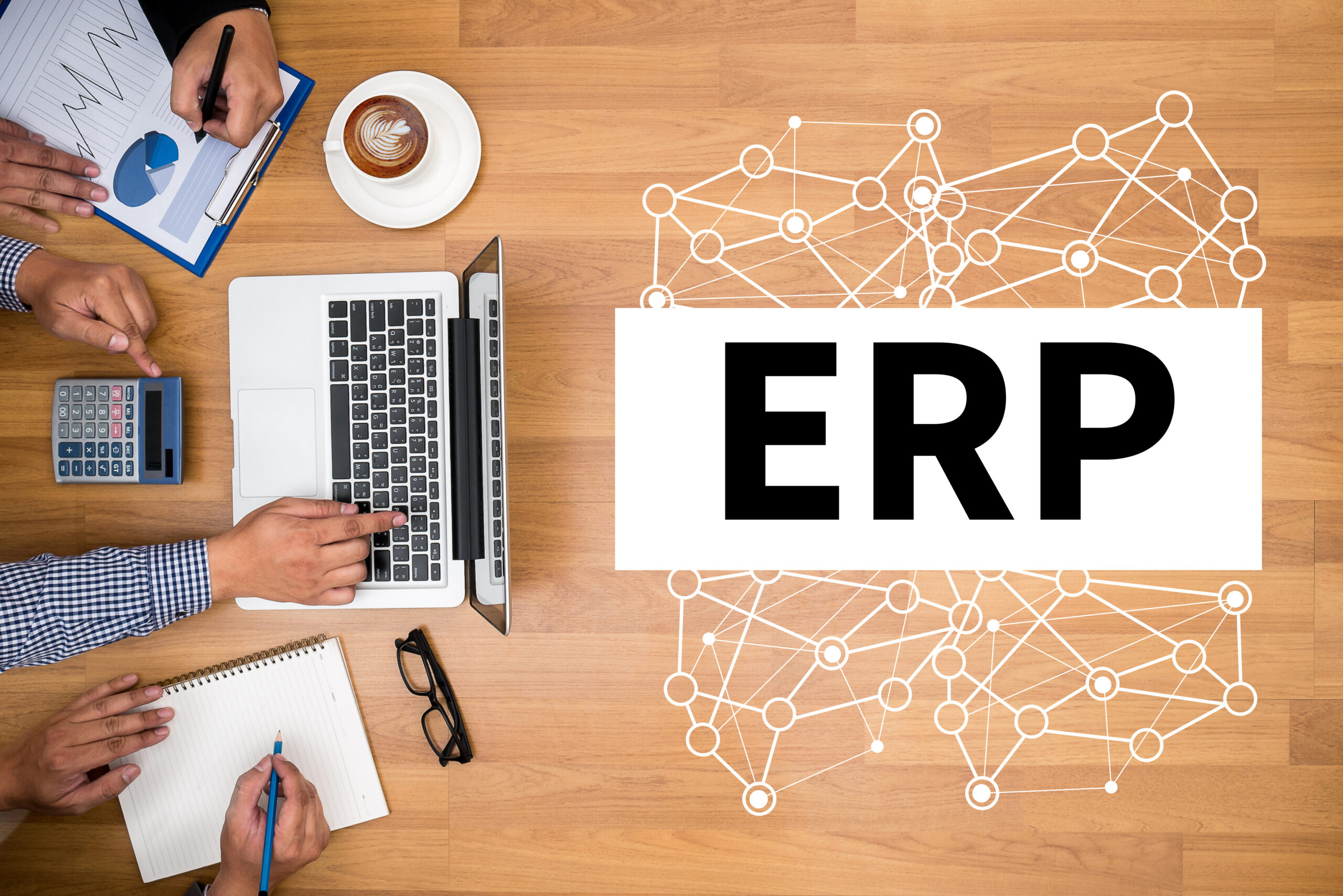As a business leader, you understand the necessity of enterprise resource planning (ERP) systems to integrate data and processes across your organization. However, traditional ERPs lack the intelligence to adapt to your ever-changing business needs. The integration of artificial intelligence is revolutionizing ERP, taking it from rigid and reactive to fluid and predictive.
Join us as we explore how pioneering AI technologies like machine learning and natural language processing enhance ERP capabilities. We will provide critical insights into intelligent features like real-time analytics, intelligent automation, and smart forecasting. You will discover how an AI-powered ERP can evolve with your business, driving greater efficiency, agility, and competitive advantage. The future of ERP is here.
The Evolution of ERP: From Automation to Intelligence
ERP systems have come far from their early roots in materials requirements planning (MRP). The first generation of ERP focused on automation, helping organizations integrate business processes and transactions across the enterprise. By the 1990s, ERP evolved into a tool for operational efficiency and data centralization.
1. The rise of cloud computing and software-as-a-service (SaaS) delivery models marked the third generation of ERP.
Vendors began offering ERP solutions as a subscription service over the Internet, providing more flexibility and lower costs. At the same time, globalization and the digital economy were driving businesses to become more connected, collaborative, and customer-centric.
2. Most recently, AI and machine learning have propelled ERP into its fourth generation.
Using predictive analytics and intelligent automation, modern ERP platforms can sense and respond to changes, learn and improve over time, and even recommend optimized business decisions. AI-enabled ERP helps organizations gain insights, accelerate innovation, personalize customer experiences, and achieve new levels of performance and productivity.
3. The future of ERP will likely see systems becoming virtual, voice-activated, and increasingly self-managing.
As ERP continues to harness the power of emerging technologies, it is transforming into an intelligent platform to guide businesses into the age of Industry 4.0 and beyond. The pioneers of the latest generation of ERP are paving the way for enterprise management that is insight-driven, adaptive, and designed to fuel sustainable growth in an era of exponential change.
ERP has evolved significantly, keeping pace with technological and social progress over the decades. While automation and integration remain at its core, the future is focused on intelligence and innovation. ERP is pioneering how organizations can harmonize systems, enhance experiences, and achieve seemingly impossible outcomes. The next frontier of ERP may very well usher in a new renaissance for business.
Integrating AI and Machine Learning Into ERP Systems

Enterprise Resource Planning (ERP) systems have evolved from essential transactional and operational tools into intelligent platforms capable of transforming business processes. By integrating Artificial Intelligence (AI) and Machine Learning (ML) capabilities, ERP systems gain valuable insights into operations, enabling enhanced planning, forecasting, and decision-making.
Predictive Analytics and Planning
AI and ML techniques can analyze huge volumes of data to detect patterns and trends. Integrated into ERP systems, these capabilities provide predictive analytics to support better planning and forecasting. Sales forecasts can be generated based on past performance, seasonal trends, and external market influences. Procurement planning uses predictive analytics to determine optimal stock levels and place orders at the best time.
Optimized Processes
ERP systems contain a wealth of data on business processes, which can be leveraged by AI and ML algorithms to optimize workflows. For example, ML can analyze supply chain data to determine where bottlenecks and inefficiencies exist. It can then recommend optimized routes and schedules to improve delivery times. AI assistants can be integrated into ERP platforms to help employees work more efficiently by automating repetitive tasks and providing recommendations based on past actions.
Personalized Experiences
By applying AI and ML to ERP data, organizations can gain a better understanding of customer needs and behaviors. This enables the delivery of tailored, personalized experiences through the ERP system and associated customer portals. For example, AI can analyze customer data to generate product recommendations based on past purchases and interests. It can also determine the best time and channel to contact each customer.
Integrating intelligence into ERP platforms is a continuous process. However, organizations can gain data-driven insights by leveraging AI and ML, optimizing critical business processes, and delivering next-generation customer experiences. ERP systems have genuinely evolved into intelligent platforms capable of pioneering change in enterprise management.
Key Areas Where AI Is Transforming ERP Capabilities
Automated Workflows and Process Optimization
- AI enables ERP systems to automate repetitive, mundane tasks and optimize key business processes. AI algorithms can analyze historical data to identify patterns and inefficiencies in workflows. The ERP system can then recommend streamlined processes to improve productivity and reduce errors. For example, AI may analyze procurement data to determine the optimal approval levels for different purchase values. It can then configure workflow automation to implement the new approval processes.
Predictive Insights and Prescriptive Actions
- ERP systems contain a wealth of historical data that AI can analyze to detect trends and patterns. AI uses these insights to make predictions about future outcomes and events. ERP systems can then recommend specific actions that users should take based on the predictive insights. For example, AI may analyze sales, inventory, and customer data to predict that a particular product will be out of stock in a month. The ERP system can then recommend increasing production of that item or placing a larger order with the supplier.
Personalized Experiences
- AI enables ERP systems to understand individual users better and provide personalized experiences. The ERP system can customize interfaces, reports, and workflows to suit that specific user by analyzing data about a user’s role, preferences, and past behavior. For example, when a procurement manager logs in, the ERP system may prominently display reports and dashboards related to purchasing and suppliers. AI can also push notifications and alerts tailored to individuals based on their areas of responsibility.
Continuous Learning and Improvement
- AI transforms ERP systems into self-learning platforms that continuously improve over time. As users interact with the system, AI algorithms analyze the data to detect patterns that can optimize and enhance the user experience. The ERP system can then automatically change interfaces, workflows, alerts, and reports based on the insights gained through continuous learning. Over time, this results in an ERP system highly tailored to an organization’s unique needs and processes.
In summary, AI enables a new generation of intelligent, predictive, prescriptive, personalized, and continuously learning ERP systems. Businesses can achieve agility and responsiveness by infusing ERP platforms with AI capabilities. ERP systems evolve into digital assistants that can optimize key processes, uncover valuable insights, and guide strategic decision-making.
The Future of Intelligent ERP: Shaping Enterprise Agility
Integrating AI and Machine Learning
- Artificial intelligence (AI) and machine learning are transforming traditional ERP systems into intelligent platforms that can adapt to the dynamic needs of modern businesses. By integrating AI and ML capabilities, ERP systems can uncover insights, predict outcomes, recommend the following best actions, and automate repetitive tasks. This infusion of intelligence allows ERP platforms to become proactive rather than reactive, enabling greater enterprise agility and competitiveness.
Drawing Actionable Insights
- AI and ML algorithms can analyze huge volumes of ERP data to detect meaningful patterns and uncover critical insights. Executives and managers gain visibility into trends that impact KPIs, productivity, costs, and other metrics crucial to performance monitoring and optimization. Data-driven insights provide the foundation for informed, strategic decision-making across the enterprise.
Predicting Future Outcomes
- Intelligent ERP systems leverage predictive analytics to forecast future scenarios, events, and outcomes. Predictive models help anticipate potential risks, spot new opportunities, and estimate the impact of business decisions before they are made. With greater foresight into possible futures, organizations can steer optimally to achieve desired results.
Recommending Next Best Actions
- AI powers intelligent ERP platforms to provide contextualized recommendations to users. Recommendation engines analyze business processes, user profiles, and historical data to suggest the most relevant information and the best actions for individuals and teams. Personalized recommendations enable users to work more efficiently and productively, reducing time wasted searching for resources or determining the best course of action.
Automating Repetitive Tasks
- Intelligent ERP incorporates robotic process automation (RPA) to handle high-volume, repetitive tasks without human intervention. Bots and virtual assistants take over mundane processes like data entry, report generation, and simple transactional workflows. Employees can focus on higher-value, strategic priorities by eliminating inefficient manual work. RPA also reduces errors and accelerates ERP processes for greater productivity.
In summary, the future of ERP is intelligent. AI and ML are the technologies pioneering this evolution, enabling ERP platforms to become insight-driven, predictive, proactive, and automated. Intelligent ERP holds the key to building enterprise agility and gaining competitive advantage.
ERP Evolved: Pioneering Intelligence in Enterprise Management FAQs
i. How is AI transforming traditional ERP systems?
Traditional ERP systems are evolving to become more intelligent and adaptive to today’s dynamic business environment. Artificial intelligence (AI) technologies like machine learning and natural language processing are being integrated into ERP platforms to provide predictive insights, enable conversational interfaces, and automate more complex business processes.
ii. What are the benefits of an AI-powered ERP?
An intelligent ERP system powered by AI can help businesses in several key ways:
- Gain predictive insights. AI can detect trends and predict future outcomes by analyzing historical data and patterns to enable data-driven decision-making. For example, AI can forecast supply chain risks or predict customer churn.
- Enable conversational interfaces. Chatbots and virtual assistants allow users to interact with the ERP system using natural language. This makes the system more user-friendly and accessible. Employees can get answers to questions or perform tasks simply by talking to the AI.
- Automate complex processes. AI technologies can handle more sophisticated automation of business processes like order management, recruiting, and customer service. This reduces manual effort and errors, increases efficiency, and improves the customer experience.
- Continuously optimize. An AI-based ERP system can use machine learning to continuously learn and adapt to business changes. It can refine predictions, personalize experiences, and optimize automated processes based on user feedback and interactions over time. This makes the system increasingly tailored to the organization’s unique needs.
iii. What does the future hold for intelligent ERP?
The integration of AI and ERP is still in the early stages, but it is poised to transform enterprise management in the coming years. As the underlying technologies continue to advance, AI-powered ERP systems will become even more intelligent, predictive, and adaptive. They will play an increasingly vital role in digital transformation strategies, enabling businesses to maximize efficiency, gain competitive advantage, and thrive in the data-driven economy. The pioneers of intelligent ERP are pioneering the future of enterprise management.
Key Takeaways
Integrating AI into ERP systems marks a significant evolution in enterprise management. By leveraging intelligent technologies, organizations can pioneer a more sophisticated approach to orchestrating complex business processes and deriving actionable insights. Adopting AI-powered ERP solutions requires strategic vision and investment, but the potential benefits are profound. With the power to continuously learn, adapt, and optimize, AI-driven ERP promises a more intelligent, responsive, and predictive platform for managing operations amidst constant change. As pioneers in this space continue to innovate, the future looks bright for a new era of intelligent enterprise management systems. The possibilities are exciting, but the journey has only just begun.
More Stories
Meta AI App Adds Warning to Prevent Accidental Sharing of Private Chats
In today's world, digital privacy is more important than ever. Meta has taken a major step to protect user data....
Android Instant Apps Retired After Years of Low Adoption
Google decides to retire Android Instant Apps by December 2025 as they struggled to capture user interest since its launch in 2017.
Snapchat Brings Messaging Power to the Apple Watch
In an era where connectivity is king, Snapchat takes a pioneering leap by bringing its dynamic messaging capabilities to the...
Gemini Takes the Initiative: AI That Actually Does Your Tasks
This innovative feature in Gemini allows you to set natural-language prompts to execute specific tasks at designated times.
Google’s AI Edge App Brings Offline Intelligence to Your Phone
The new AI Edge App from Google reshapes mobile technology as it brings artificial intelligence directly to your smartphone.
Roblox Farming Craze Fuels Surging App Store Economy
As you dive into the dynamic world of digital economies, one phenomenon stands out: the Roblox farming craze. This surge,...


